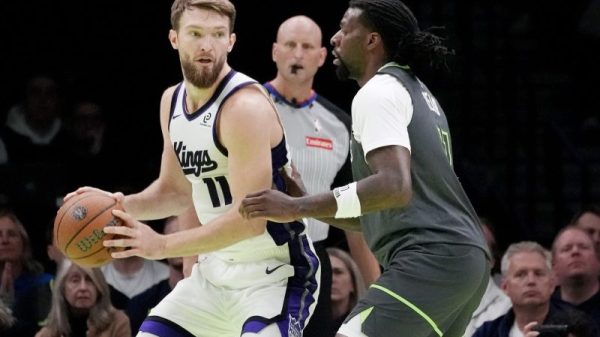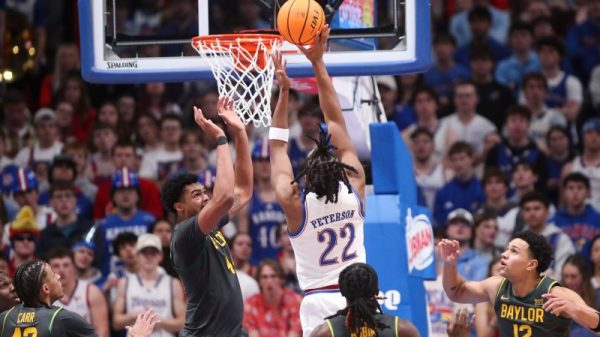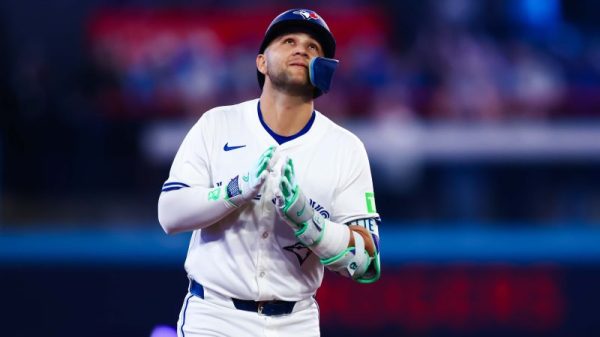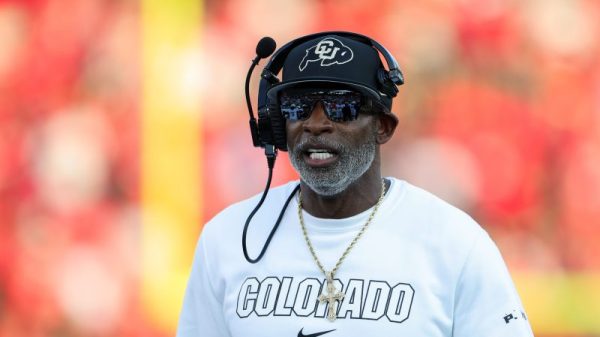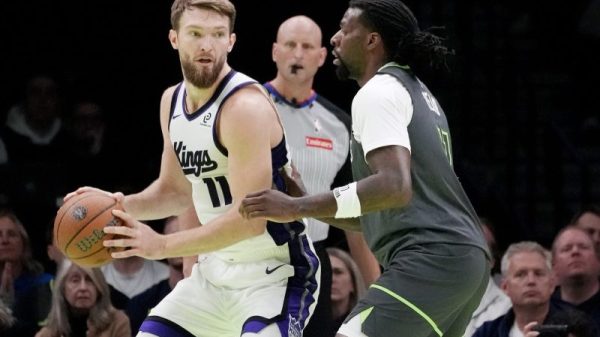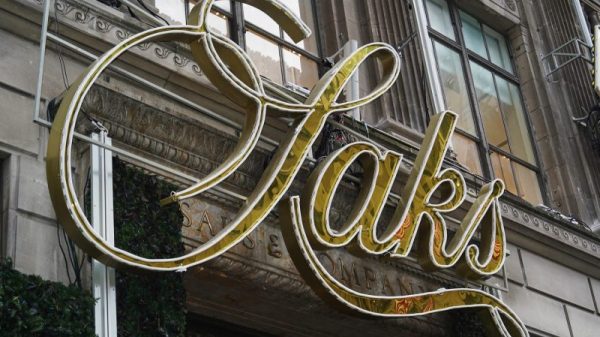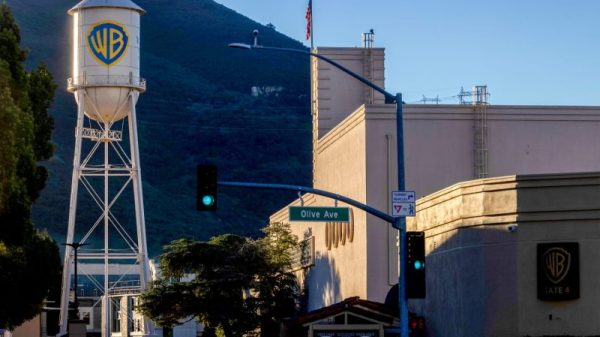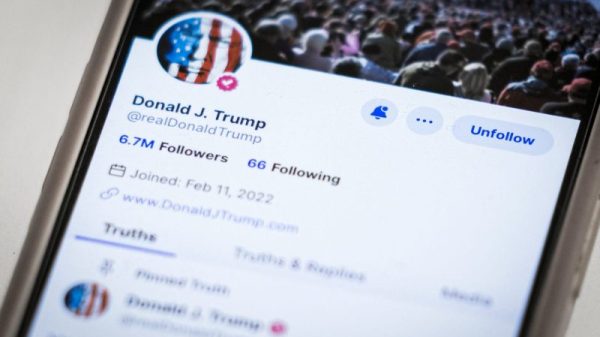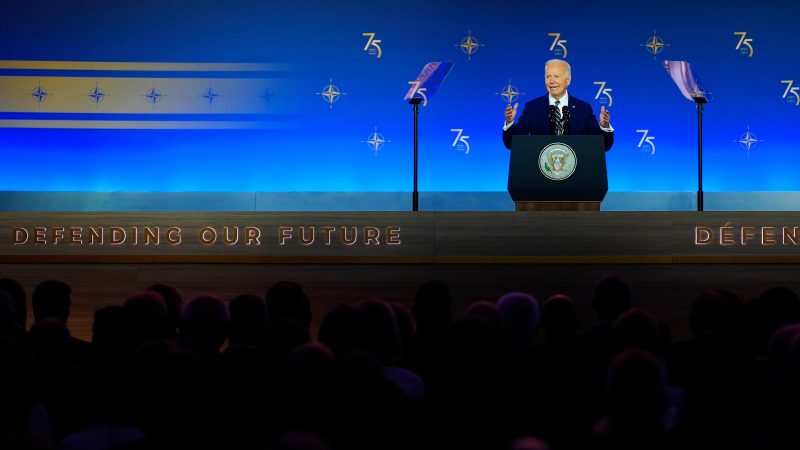The 31 NATO leaders who descended on Washington this week came expecting to talk about defending Ukraine, preventing cyberattacks and ensuring the future of the 75-year alliance. And while those discussions did take place Wednesday, an entirely different question was also a big topic of conversation among the heads of state: What is going to happen to President Biden?
The long-planned summit is overlapping with a moment of extraordinary political peril for Biden, as Democrats debate whether he should remain their presidential nominee since a shaky debate performance on June 27 prompted questions about his age, ability to campaign against Republican Donald Trump and capacity to serve another four-year term.
On Wednesday, the second of the summit’s three days, the leaders debated those questions among themselves, anxiously asking their American counterparts what to make of the unfolding political crisis and closely parsing Biden’s public and private interactions to determine whether he seems up to another brutal campaign and presidential term, according to several people familiar with leaders’ reactions, speaking on the condition of anonymity to discuss private dynamics.
Since arriving in Washington on Tuesday and having their opening conversations with Biden, NATO’s leaders have been comparing notes on their impressions of the president, one European official familiar with the interactions said, in an effort to build as complete a portrait as possible of the most important alliance leader.
Two people who have spoken with the NATO leaders and dignitaries said most of them have four key questions, ones that largely track what many Americans are asking: Is Biden going to drop out? If he does, will Vice President Harris replace him at the top of the ticket? What does Harris mean for NATO? And what should they do to prepare for a possible Trump presidency?
The former president has threatened to shred the alliance and said he would allow Russia to do “whatever the hell they want” to any NATO country that doesn’t spend enough on defense. But despite the underlying fears of Trump’s return, which many of the leaders dread, the mood of the NATO summit has been upbeat in many ways, said Ian Bremmer, president of the Eurasia Group, a consulting firm.
Leaders are encouraged by the fact that Ukraine is in a better position in its two-year-plus war with Russia than it was three months ago, even if deep concerns remain about its long-term prospects. And Biden welcomed two new countries, Finland and Sweden, into NATO, and touted the fact that the number of allies spending at least 2 percent of their GDP on defense has increased from nine in 2020 to 23 now.
Still, “there’s no question that what’s happening today with Biden — and with questions about American democracy and commitment to the transatlantic alliance — is making everyone very nervous,” Bremmer said.
White House officials, mindful that divisions over Ukraine broke into the open at last year’s NATO summit in Lithuania, have spent the past 12 months trying to manage Kyiv’s expectations about its prospects for membership in the alliance. They have emphasized that this year’s gathering would be largely an opportunity to celebrate 75 years of NATO, potentially delivering a foreign policy boost to Biden ahead of the election.
But Biden’s debate performance two weeks ago transformed the energy at the gathering, sucking the air out of the festivities and focusing attention on the president’s ability to do his job, according to several participants.
Any NATO summit features an intense focus on the U.S. president. He typically speaks first in the leaders’ closed-door meetings, a recognition of the key role Washington plays in propping up the alliance. This year, the United States is set to spend $968 billion on defense, according to NATO figures — nearly double the total expenditure of the other 31 member nations.
But with Biden’s abilities in question, that casual attention has transformed into detailed, anxious analysis of his every gesture and utterance. Some leaders have been undertaking an effort to bolster NATO against the possibility that Trump would return and undermine it from within. Even under Biden, some strong supporters of Kyiv complain that the alliance has not been aggressive enough about supporting Ukraine and moving it more quickly toward NATO membership.
Biden’s most important test will come Thursday, when he is set to hold a rare news conference that Democrats say will be critical to showing that he has the energy and mental agility to campaign against Trump. European leaders will closely watch that news conference to try to determine whether his debate performance was a bad night, as Biden has argued, or a sign of a bigger problem that could make it more challenging to defeat Trump.
As early as Tuesday, leaders began exchanging notes on their interactions with Biden and how much he appears to have aged. One person familiar with some of the conversations said leaders felt that Biden was showing no improvement over his appearance at the Group of Seven summit in Italy last month, when European officials came away alarmed at how much more frail he seemed.
Several European leaders have known Biden for many years — some dating back to his days as vice president more than 10 years ago — and that has made his recent aging especially stark, the person familiar with the conversations said.
Discussions of Biden’s condition and political future have dominated the chatter on the sidelines of the summit. At a reception at the British ambassador’s grand residence Tuesday, American officials maintained studious poker faces when the topic of Biden’s future came up. European ministers and security officials, meanwhile, pumped American acquaintances for insider details about the thinking at the White House, the mechanics of nominating a different Democratic candidate and potential replacements, according to people familiar with the conversations, who like others spoke on the condition of anonymity to discuss sensitive matters.
At a Tuesday reception with all 32 NATO leaders, Biden’s mannerisms were similar to those in a welcome speech he had delivered earlier that evening, as he recognized many of his counterparts without prompting and engaged in fluid if brief encounters, one European official said. The president mingled with other leaders alone, without his or their aides present, the official said.
Still, foreign leaders, like many American observers, are now viewing some of Biden’s behaviors, which earlier they might have dismissed as inconsequential, through a new lens.
During Biden’s opening speech Tuesday, many in the audience were watching closely as the president put the presidential medal of freedom around the neck of outgoing NATO Secretary General Jens Stoltenberg, according to three people who were present. One person said some in the audience held their breath, anxious to see if Biden could complete the task. The ceremony went off without a hitch.
Biden then spoke passionately about the renewed strength of the alliance, which has largely remained unified in the face of Russia’s invasion of Ukraine. Biden did not mention Trump by name, but he stressed that a majority of Americans support NATO and spoke of the danger of a world without the alliance.
“It’s good that we’re stronger than ever, because this moment in history calls for our collective strength,” Biden said in his speech. “The American people understand what would happen if there was no NATO — another war in Europe, American troops fighting and dying, dictators spreading chaos.”
At the summit’s main meeting Wednesday, Biden delivered prepared remarks of about three minutes without difficulty, then appeared attentive throughout the hours of interventions by the other 31 leaders, four senior officials who took part said.
After the meeting, Biden hosted Britain’s new prime minister, Keir Starmer, at the White House.
Early in the day, Biden stopped by a meeting of AFL-CIO leaders, a friendly group that has reaffirmed its support for the president. “I’ve never been more optimistic about America’s chances,” Biden told the labor group. “Not because of me, but because of what we’re doing together.”






